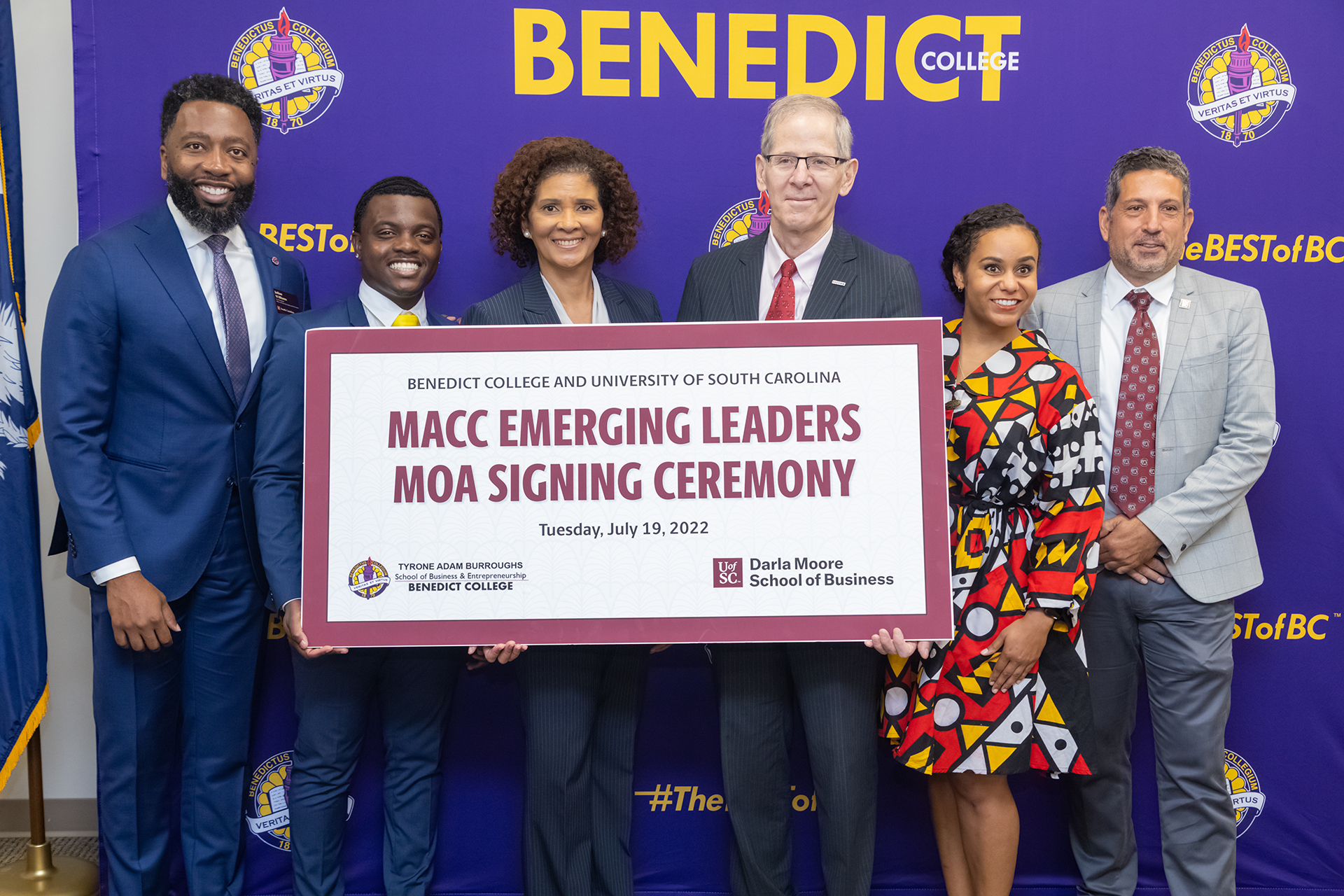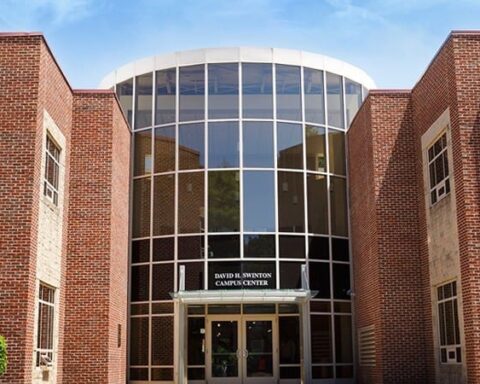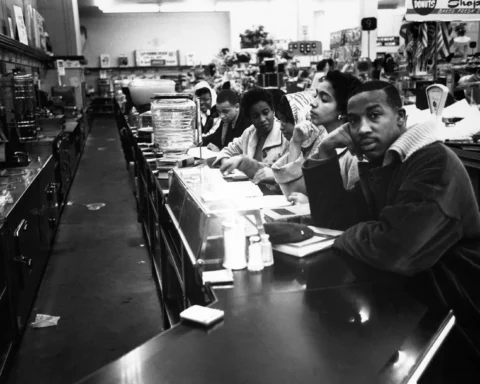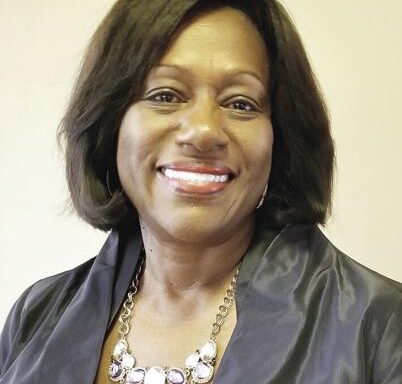Courtesy of Benedict College
The University of South Carolina Darla Moore School of Business’s School of Accounting is partnering with South Carolina historically Black colleges and universities to provide admission and a financial pathway for HBCU graduates to attend the Master of Accountancy program.
Dean Tracy Dunn of the Benedict College School of Business and Entrepreneurship and Dean Peter Brews of the University of South Carolina Darla Moore School of Business official announced the new program and signed a Memorandum of Agreement (MOA) at a press conference on Tuesday, July 19, 2022, at the Benedict College Business Development Center, located at 2601 Read St.
Three students from Benedict College and one from Claflin University will attend the UofSC Master of Accountancy program for the MACC Emerging Leaders Program’s inaugural fall 2022 semester.
“The Darla Moore School of Business is an industry standout in producing elite business leaders, just as Benedict College and other South Carolina HBCUs are renowned for graduating top talent. This program’s collaboration can help lead the way in developing institutional relationships with local HBCUs that will enhance South Carolina’s ability to remain competitive as an economic and cultural hub for our region,” said Tiara Dungy, director of inclusive engagement for the Moore School’s Office of Diversity and Inclusion.
As part of the program, students will receive financial support that covers their tuition and a $5,000 stipend to assist with living expenses while enrolled.
“Our partnership with the Darla Moore School of Business is uniquely special,” said Tracy Dunn, dean of Benedict’s Tyrone Adam Burroughs School of Business and Entrepreneurship. “This program represents a significant financial investment in Benedict College accounting graduates who will receive a world-class graduate education in the UofSC Master of Accountancy Program.”
The first female dean of Benedict College’s business school, Dunn earned her ’96 MBA and ’03 Ph.D. in business administration from the Moore School.
For the MACC Emerging Leaders Program, accounting firm Dixon Hughes Goodman, now known as FORVIS after a recent merger, is providing a $20,000 fellowship award for up to three students in the program each academic year. FORVIS is also participating in the application, interview and selection process, and their employees will act as professional mentors to the students while in the program. FORVIS is also offering internships for select students; one of the students in the inaugural year of the program is interning with FORVIS.
“The Moore School and the MACC program are excited to work with FORVIS to initiate the MACC Emerging Leaders Program as the program aligns with the MACC program’s desire to increase diversity and foster student success by providing an admission and, thanks to FORVIS’s generous support, a financial award pathway for students from historically Black colleges and universities in South Carolina,” said Chad Stefaniak, a Moore School accounting associate professor and the MACC program’s academic director. “Enrolling these students gives them the opportunity to complete a leading, customizable MACC program that has a proven track record of honing students’ ability to analyze information, identify problems and provide value-added solutions — all while gaining the confidence and communication skills needed to stand out in the accounting field.”
In addition to FORVIS’ support, funding for the MACC Emerging Leaders Program has also been awarded through the University of South Carolina Rising STARS Fellowship to support students. The Rising STARS Fellowship is a university-wide initiative aimed at funding opportunities for graduates of South Carolina HBCUs to pursue graduate education at UofSC.
While the first four enrollees in the MACC Emerging Leaders Program are from Benedict College and Claflin University, the Moore School would like to expand the program to include students graduating from additional South Carolina HBCUs in future academic years.
HBCU students who apply to the program but are not selected will be eligible for alternative scholarship support from other sources.





